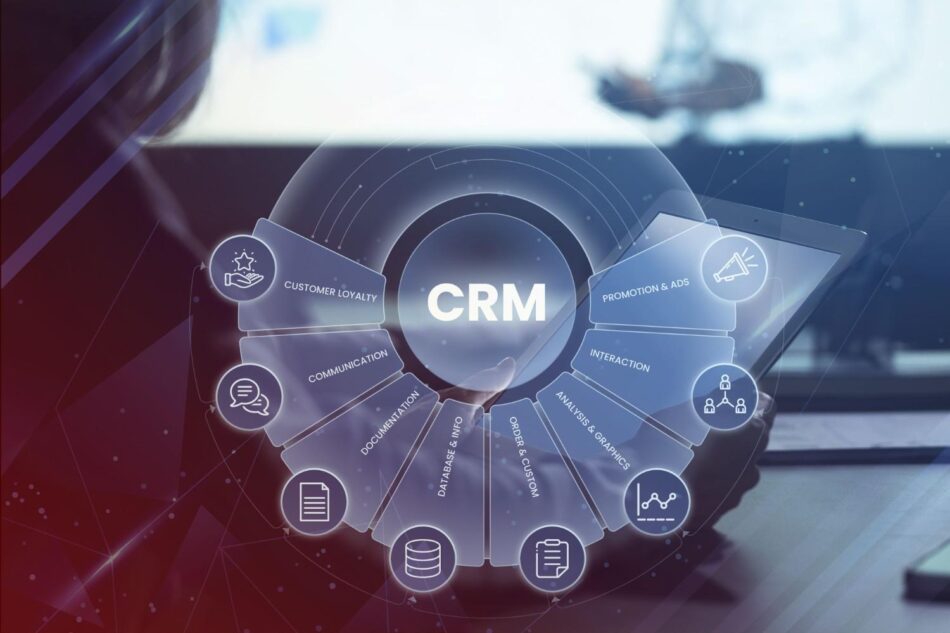In 2025, organizations are increasingly relying on CRM systems to manage consumer relationships, automate workflows, and drive revenue growth. Staying ahead approach knowledge the present-day CRM development technologies that may help create scalable, data-driven, and customer-friendly structures. In this manual, we explore the top CRM technologies for 2025 and the way they could revolutionize your consumer management strategies.
Why CRM Development Technologies Matter in 2025
Modern groups face intense competition, and customers assume seamless, customized experiences. CRM development technologies are now not just tools—they are the backbone of green consumer engagement. The right technology stack guarantees:
Faster deployment of CRM functions
Enhanced records security and compliance
Scalable structures that grow with your business
Better integration with AI, analytics, and 0.33-celebration apps
By leveraging modern-day improvement equipment, companies can deliver CRM systems that no longer only manipulate records but also offer actionable insights to drive enterprise growth.
Top CRM Development Technologies to Watch
The following technologies are leading the way in 2025 CRM development:
React 18: Building Interactive CRM Interfaces
React 18 is revolutionizing how person interfaces are constructed for CRM systems. Its factor-based structure permits builders to create dynamic, responsive, and high-acting consumer interfaces. React 18’s capabilities, like concurrent rendering, improve gadget responsiveness, enhancing the consumer enjoy for both personnel and clients.
Next.js 14: Optimized Performance and SEO
Next.js 14 is a framework for React that offers server-side rendering and static website generation. This technology ensures CRM applications load quicker and are search engine marketing-friendly—an essential aspect for agencies that want to improve visibility and overall performance in virtual channels
Tailwind CSS: Efficient UI/UX Design
Tailwind CSS allows for rapid, customizable design without sacrificing overall performance. CRM developers can quickly create cutting-edge, responsive layouts, making sure customers enjoy a clean and intuitive experience.
Node.js: Scalable Backend Solutions
Node.js enables green server-facet operations, coping with more than one request concurrently with minimum latency. For CRM systems, this indicates faster statistics processing and higher help for excessive-site visitors programs.
GraphQL: Flexible Data Management
GraphQL provides a flexible manner to query and manipulate facts, lowering over-fetching and improving performance. In CRM systems, it guarantees that customers get precisely the records they need, whether or not it’s customer profiles, purchase histories, or analytics reviews.
AI & ML Integrations: Smarter Customer Insights
Artificial intelligence and systems gaining knowledge of integrations allow CRM systems to provide predictive analytics, automate repetitive tasks, and supply customized patron studies. Tools like chatbots, recommendation engines, and sentiment evaluation are becoming crucial CRM functions in 2025.
Cloud Platforms: Enhanced Security & Accessibility
Cloud-primarily based CRM solutions are crucial for modern organizations, providing scalability, stable storage, and clean get admission to from anywhere. Platforms like AWS, Microsoft Azure, and Google Cloud make certain that CRM systems continue to be dependable and compliant with data privacy requirements.
Benefits of Using Modern CRM Technologies
Adopting superior improvement technology in your CRM structures affords several commercial enterprise benefits:
Improved Customer Engagement
Modern CRM technology permits organizations to recognize customer behavior, tune interactions, and deliver customized stories that enhance loyalty and pride.
Streamlined Workflow & Automation
Automation features lessen manual effort, permitting income and guide groups to awareness on strategic obligations. Automated workflows, venture assignments, and notifications enhance productivity.
Real-time Analytics & Reporting
Modern CRM systems offer dashboards and real-time reports, allowing faster decision-making and higher tracking of sales, advertising, and marketing, and support metrics.
Enhanced Scalability and Flexibility
With cutting-edge technologies like Node.js and cloud platforms, CRM structures can scale with business growth, accommodate new functions, and combine with other equipment seamlessly.
How to Choose the Right CRM Tech Stack
Selecting the right technologies for CRM development is critical. Consider the following factors:
Assess Business Needs & Goals
Evaluate what your commercial enterprise wants to attain with the CRM. Whether it’s sales automation, customer support, or marketing analytics, your tech stack should align with your desires.
Evaluate Technology Compatibility
Ensure that chosen equipment paintings properly collectively and integrate smoothly with the existing software systems. Compatibility avoids expensive rework and improves basic efficiency.
Consider Cost vs. ROI
Analyze each premature improvement fee and lengthy-time period advantages. Investing in the proper technology in advance reduces protection fees and can provide better ROI through the years.
Prioritize Security and Compliance
Data protection is important for any CRM gadget. Choose technologies that adhere to enterprise requirements, GDPR, and different compliance requirements.
Future Trends in CRM Development
As we circulate deeper into 2025, numerous developments are shaping CRM development:
- AI-Powered Personalization: Advanced AI algorithms will continue to enhance customer-focused suggestions.
- Omni-channel Integration: CRM systems will unify conversations across web, cellular, social, and in-keep channels.
- AI-Powered Personalization: Advanced AI algorithms will help enhance consumer concentration on and tips.
- Voice & Conversational Interfaces: Voice assistants and chatbots will increasingly merge with CRM processes
- Low-Code/No-Code Platforms: Quick CRM implementation with limited coding will enable business users to develop tailored solutions
Monitoring these trends guarantees your CRM system stays competitive and prepared for the future.
Conclusion
In 2025, CRM development technologies will focus not only on handling customer data but also on delivering more intelligent, quicker, and more interactive customer experiences. Utilizing technologies such as React 18, Next.js 14, Tailwind CSS, Node.js, GraphQL, AI integrations, and cloud solutions, companies can create scalable, efficient, and cutting-edge CRM systems.
To see a comprehensive analysis of the leading 11 CRM development technologies for 2025, refer to the complete guide on Networsys.
Maintain a competitive edge by selecting the appropriate tech stack and embracing emerging trends to provide an outstanding CRM experience for your clients.








